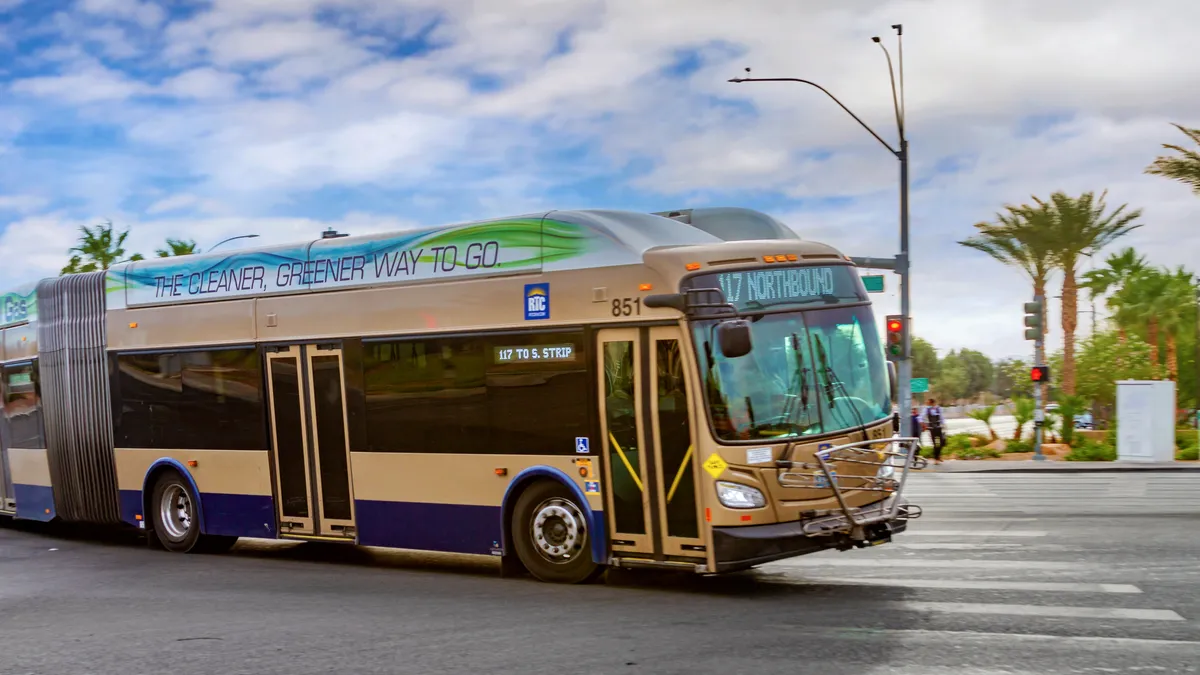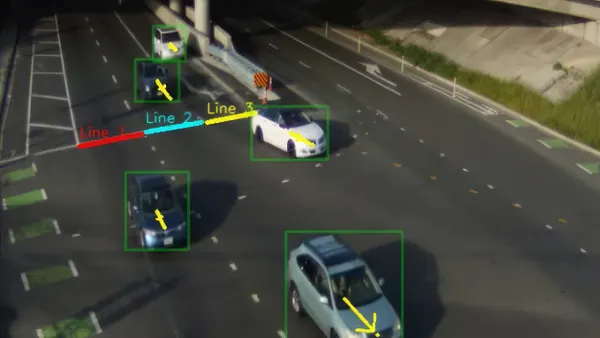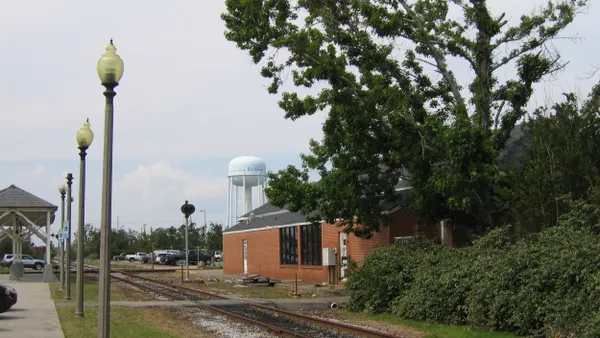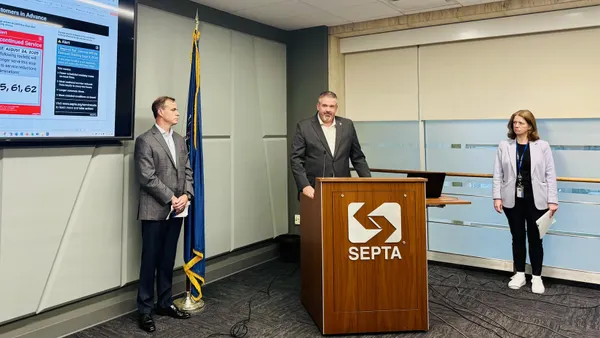Transit agencies often contract with private companies to operate part or all of their rail, bus or other services. Done right, it can improve service and even lower costs. But the pandemic reduced and redistributed ridership, slashed farebox revenues and exacerbated labor shortages that transit agencies still struggle with — creating unfamiliar challenges for transit providers.
“Agencies are going to be having to do things differently,” said Robert Puentes, president and CEO of the Eno Center for Transportation. “This is a real time for innovation and for new ideas and new opportunities.”
Puentes said that transit agencies should reach out to different organizations, including private contractors, for new technologies, processes and resources. The nonprofit think tank published a report March 15 looking into public transportation best practices for a successful relationship with the private sector.
Outsourcing operations to private contractors is nothing new: In the United States, nearly two-thirds of transit agencies contract part or all of their operations, the report says. Of the 533 agencies that fully reported data to the Federal Transit Administration in 2022, about 60% contracted all or some of their bus services. All new commuter rail services started between 1980 and 2016 use private contractors for their operations, according to the Eno report.
But there are right ways and wrong ways of going about outsourcing transit operations, the report says. “If a public agency is just trying to engage the private sector to save money, that's not the right approach,” Puentes said. “A true public-private partnership is when risks and rewards are shared fully.”
The Eno report includes three case studies on agencies that currently contract their transit services. In southern Massachusetts, the Greater Attleboro Taunton Regional Transit Authority operates in 29 communities with fixed-route, demand-response and microtransit services. As ridership changed and declined during the start of the pandemic, the contract operator offered expertise the transit agency didn’t have, helping the agency to understand how changes to fixed routes impacted the rest of the system, the report says.
The Regional Transportation Commission of Southern Nevada, which serves Las Vegas, contracts all of its operations, which include fixed-route bus, microtransit and paratransit services. The Eno report found that the agency relies on good relationships with its contractors, which benefit both partners. Its contractors introduced new technologies, such as transit data software, and vendors specializing in transit video surveillance and adaptive transit services.
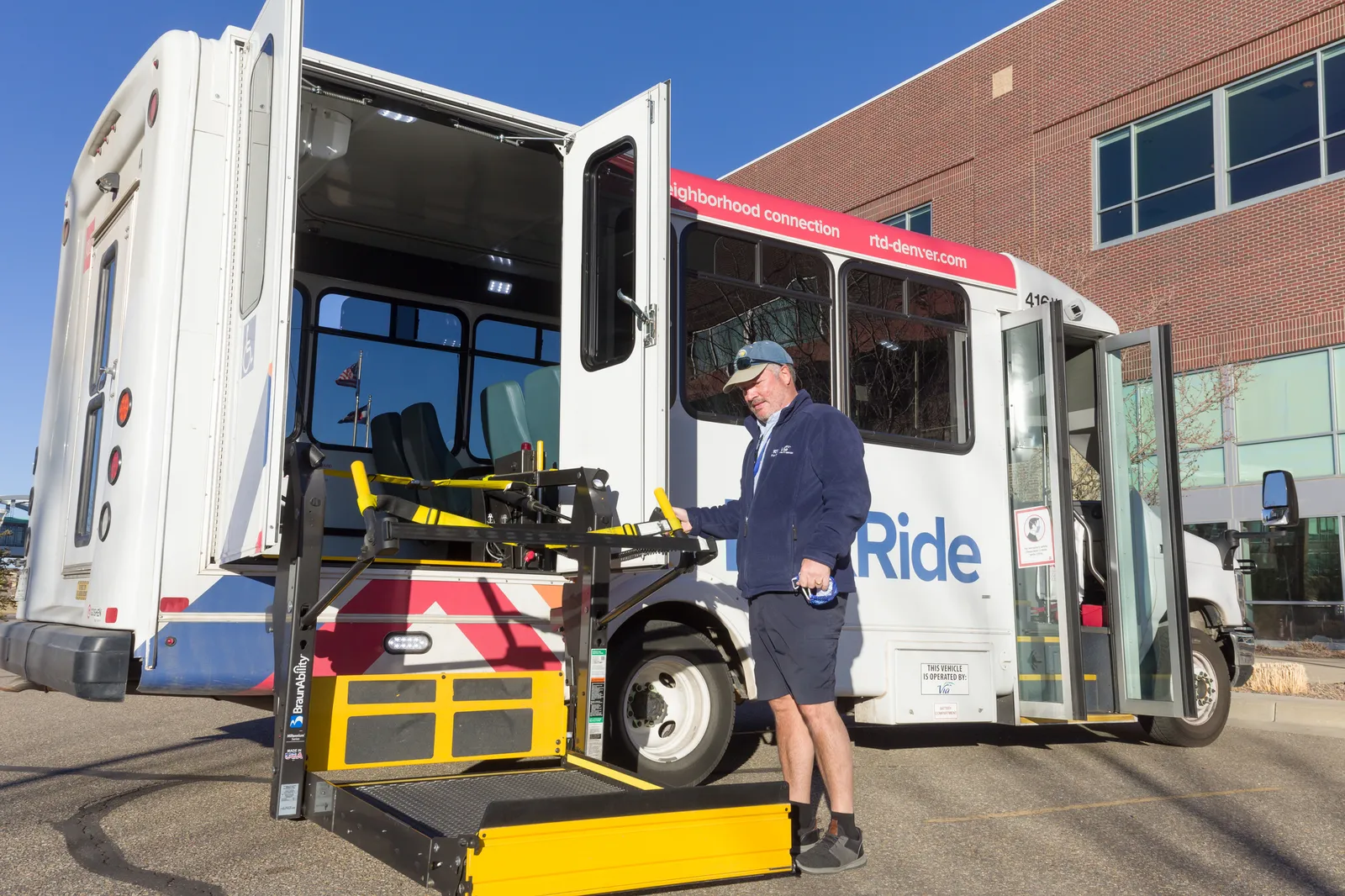
In Colorado, Denver’s Regional Transportation District provides light rail, bus and demand-response services serving nearly 3 million people. The agency outsources about half its bus service and all of its special services. According to the Eno report, RTD maintains open communications with its vendors and has regular meetings with all of the contractors together, encouraging collaboration.
Puentes said that the pandemic’s fallout has encouraged transit agencies to be open-minded to new ideas. He explained that private sector partners can bring knowledge from clients in different parts of the U.S. or the world and tap into other vendors and technologies they’ve experienced.
The report concluded that “contracting’s success and largest benefits are most likely to materialize when it is implemented in a collaborative, careful, strategic, cooperative, and context-appropriate way.” Success factors include customizing contracts to the mode of service; allowing the contractor the flexibility to innovate; and positive working relationships between the agency and vendor.
“It’s about better relationships, transparency,” Puentes said. “All of those good governance things still are the primary reasons why you want to consider [private contracting].”



